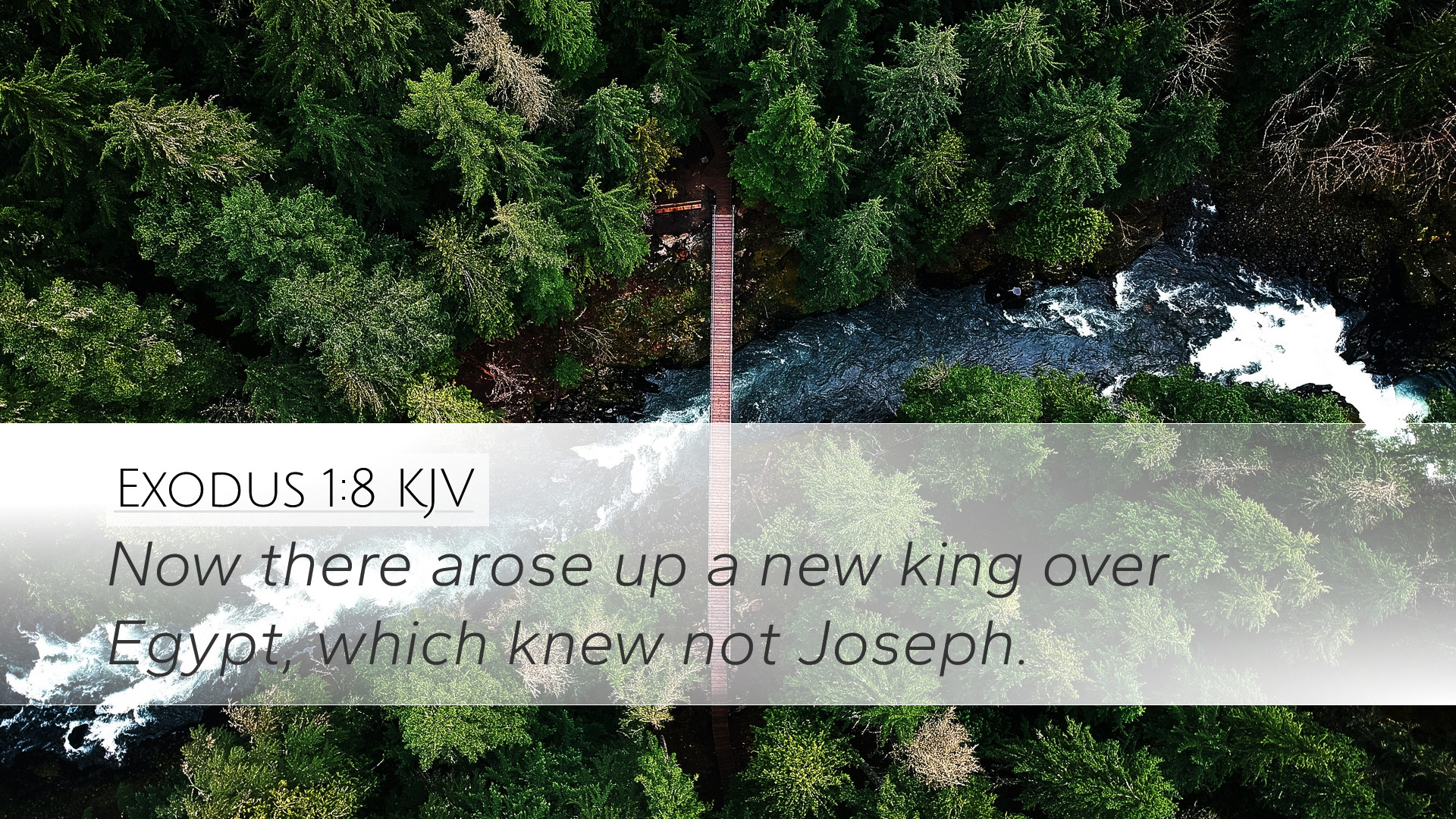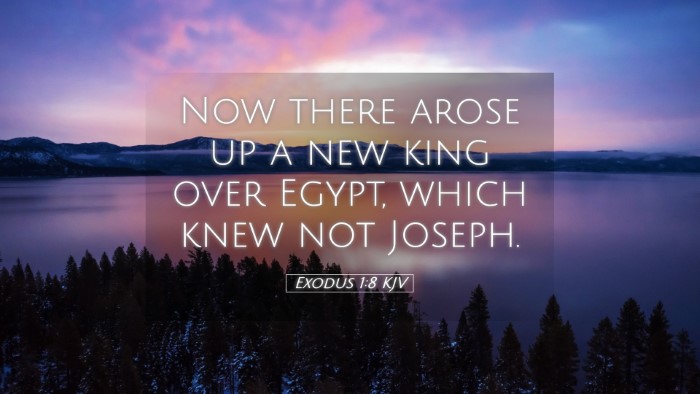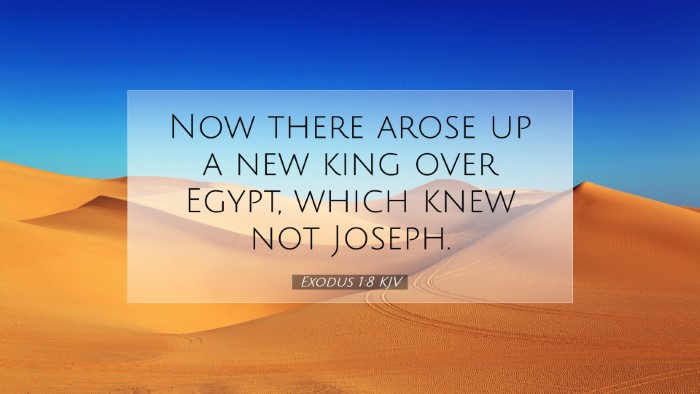Commentary on Exodus 1:8
Text: “Now there arose up a new king over Egypt, which knew not Joseph.”
Introduction
Exodus 1:8 introduces a pivotal moment in the history of Israel and Egypt. The mention of a new king who did not know Joseph serves as a catalyst for the events leading to Israel's oppression and eventual deliverance. This commentary combines insights from respected public domain authors to explore the theological significance and historical context of this verse.
Historical Context
To fully grasp the depth of this verse, it is essential to understand the historical context. The legacy of Joseph, who saved Egypt from famine and elevated his family, played a significant role in maintaining favorable relations between the Israelites and the Egyptians. However, time altered perceptions and historical memory.
-
Matthew Henry: Henry emphasizes that the new king's ignorance of Joseph symbolizes a turning away from God’s providence. He reflects on the transitory nature of success and the vulnerability of God’s people to changing regimes and policies.
-
Albert Barnes: Barnes notes that the shifting political landscape in Egypt, marked by the ascension of a king who did not recognize Joseph’s contributions, illustrates how historical amnesia can lead to oppression. Leaders can often disregard the benevolence shown by previous generations.
-
Adam Clarke: Clarke mentions that the term "new king" points towards a historical shift which could signify a change in dynasties or at least a departure from veneration of past heroes like Joseph. This serves as a reminder of how political changes can drastically affect the fate of a nation within a nation.
Theological Significance
Exodus 1:8 is rich in theological implications. The king's ignorance points to deeper themes of divine sovereignty, human forgetfulness, and God's covenant faithfulness.
-
God's Sovereignty: The events that unfold in Exodus, including the rise of oppression against Israel, reflect God's sovereign plan even in times of hardship. This is echoed by both Henry and Barnes who highlight that God remains in control, orchestrating events leading to redemption.
-
Human Forgetfulness: The new king’s lack of knowledge about Joseph signifies how easily accomplishments and blessings can be forgotten. Clarke underscores how society often neglects its history and the lessons that should be learned from it. This forgetfulness paves the way for injustice.
-
Covenantal Faithfulness: Despite the new king’s ignorance, God’s covenant with Abraham, Isaac, and Jacob remains unchanged. The narrative in Exodus reveals how God prepares to fulfill promises of deliverance, as highlighted by the Commentators, especially in light of the new oppression.
Applied Lessons for Today
Exodus 1:8 not only provides historical insights but also offers practical lessons for contemporary believers, pastors, and theologians.
-
Awareness of Spiritual Heritage: Just as the new king failed to recognize Joseph’s contributions, the Church today must cultivate a remembrance of its heritage. This involves acknowledging past sacrifices and the faithfulness of God throughout history.
-
Importance of Leadership: The narrative serves as a reminder of the impact of leadership on societal values. Pastors and church leaders should strive to be informed and compassionate, recognizing the historical contexts and struggles of their communities.
-
Responding to Injustice: Just as the Israelites faced oppression, modern believers are called to confront injustice in their contexts. This verse challenges the Church to be proactive against societal neglect and to champion the cause of the marginalized.
Conclusion
Exodus 1:8 ignites a crucial dialogue about the interplay between memory, leadership, and divine purpose. In analyzing the verse through the lenses of Matthew Henry, Albert Barnes, and Adam Clarke, we glean foundational truths about God's sovereignty amidst human forgetfulness. As we move forward, may we remain vigilant in acknowledging our spiritual heritage and responding faithfully to the call of righteousness in an increasingly changing world.


